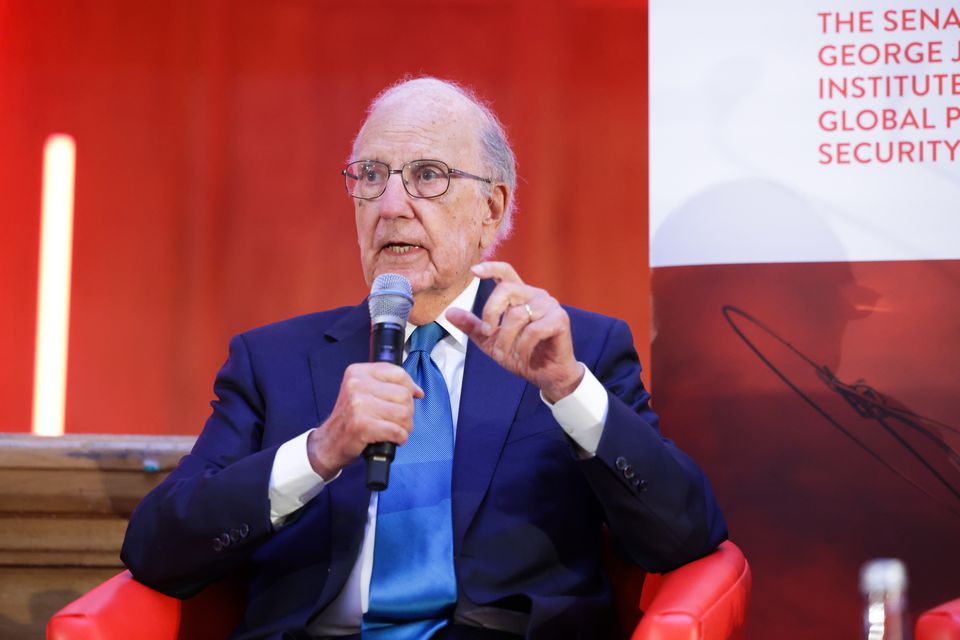George Mitchell has said he feared Northern Ireland was heading for “true disaster” in the months before the Good Friday Agreement was signed.
The veteran US diplomat said that he had “moments of despair” after years of failed negotiations before the historic 1998 peace deal was agreed.
Mr Mitchell chaired the negotiations which eventually led to the agreement, which largely ended decades of violence in Northern Ireland and the establishment of a powersharing Assembly at Stormont.
Speaking at Queen’s University in Belfast, Mr Mitchell recalled the challenges he faced before the deal was agreed.
George Mitchell spoke at the event at the Whitla Hall at Queen’s University, Belfast (Kelvin Boyes/PA)
He said he had believed his previous experience as the US Senate majority leader had prepared him to deal with the polarised political landscape.
He said: “Nothing in the United States Senate came near to what I went through in Northern Ireland.
“It was very tough and very rough.
“I had been a federal judge before I entered the senate so I was used to presiding over disputes, but I had never encountered a dispute like this.
“It was very, very difficult.
“Monica (McWilliams, one of the founders of the Women’s Coalition) will remember the early days, Paul (Murphy, former Northern Ireland Secretary) will remember the early days when it was impossible to have a reasonable conversation.
“When Monica and her co-chair of the Women’s Coalition, Pearl Sagar, sought to speak, they were insulted, they were demeaned.
“I had a tough time making it plain that they were to be treated with the same respect as any other speaker in the room.
“Which, unfortunately, was not much respect, but at least it was better than the way they were treated.
“It was difficult, but I controlled myself. I had moments of great despair.
“The setbacks were many.”
Mr Mitchell said that when then US president Bill Clinton had first sent him to Northern Ireland, he had expected to stay for six months.
He said: “It was five years. I chaired three separate sets of negotiations and for almost all that time it was failure, failure, failure, recrimination, anger, hostility.
“The ceasefires were routinely broken and killings in late 1997, early 1998 accelerated.
“I really did think we were headed for true disaster.”
He continued: “I really felt it was critical that this could be an example, that you can end violence, you can bring an end to conflict, no matter how old it was, no matter how violent it was, no matter how vicious it was.
“If for no other reason than the fear of escalation.”
